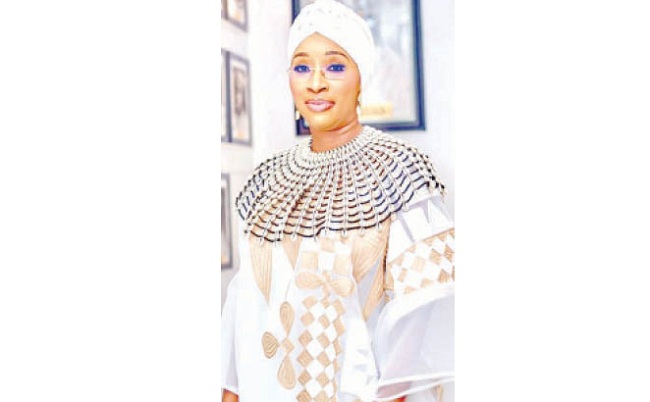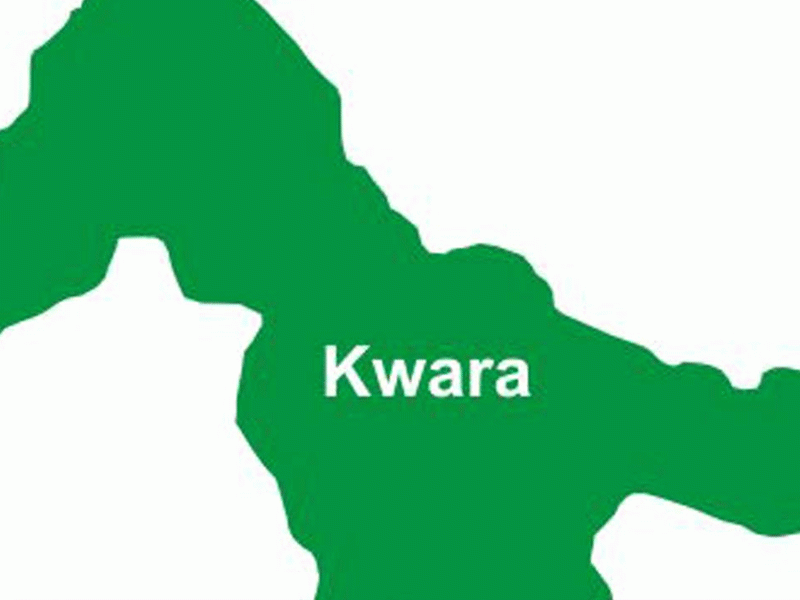
Olori Ronke Ademiluyi Ogunwusi is the wife of His Imperial Majesty, the Ooni of Ife, and the founder of Africa Fashion Week London/Nigeria. She is also the Chief Executive Officer of the Adire Oduduwa Textile Training and Production Hub in Ile-Ife, Osun State. In this interview with select journalists, she spoke on her upcoming fashion projects and why she is passionate about promoting Adire fabric to the world.
HOW did the idea for the Africa Fashion Week all begin?
The idea was birthed around 2010. When I came up with the idea, my husband, the Ooni was one of the first people that I called, to see if it’s an idea that could actually work. And so we brainstormed and did a few events together. He’s always been a part of it. He might not have attended all of the events, but he’s always been a part of it, giving me ideas on how to take it further, innovation and all of that.
This is our 14th edition in London and our 10th in Nigeria. It’s all about promoting the creative talents out of Africa. Prior to us starting Africa Fashion Week London in 2011, there wasn’t a platform that showcased the greatness of our creatives in Africa. If you look at the work that they do; the artisans, the designers, the creatives, if you see the wonderful things they do, there must be a platform that showcases them. For creativity to grow, there must be a platform that showcases and promotes its growth. If you create something and leave it in your house without exposing it to the world, it’s not going to grow. Nobody’s going to know about it. At some point, you’re going to get so frustrated because when you create something, you’re driven by passion, but to enable it to become sustainable, to enable it to outlive you, one must commercialise it. Even if you have billions somewhere, if one keeps taking from it, some day it will finish.
That was why we created Africa Fashion Week London and Nigeria, so that our creatives, our African designers would be able to have a platform to thrive that they call their own. So, that’s what we’ve been doing for the past 14 years, both in London and Nigeria. We know that Nigeria is the fashion hub of Africa, especially Lagos. So, any fashion that comes out of Nigeria or Lagos, the world, starting from African continent, tends to grab it.
Are you saying that Nigeria leads when it comes to fashion and styles in Africa?
Oh yes, definitely. Didn’t you see the last Ojude Oba festival and how the world embraced it? By just looking at the colours, culture and vibrancy of the fashion, it has trended all over the world. So yes, we are the leading voice when it comes to fashion out of Africa and then African fashion to a global market as well.
How do you form the team for your showcase of the traditional fabrics and royal regalia?
We all know that our Adiré is trending at the moment. What I wear mostly are Adiré and people don’t even believe it’s Adiré. And then because I’m a royal, I try to infuse my royalty into anything we do at Africa Fashion Week. That’s who we are as Africans, our fashion is part of our DNA. It’s our identity and we must wear and showcase it with pride as well.
So are we looking at designers from other parts of Africa or just Nigeria?
No, we’ve always had designers from other parts of Africa. Botswana, Jamaica, Ghana and South Africa.
The South Africans have been participating in the Africa Fashion Week London for 10 years now, because they know the value it brings to their economy. The exposure and the awareness that the designers get when they return home gives them allows people in their country want to patronise them.
Because we all know that London is one of the fashion capitals of the world anyway. If you can showcase in London, then that means you are an international designer.
How have you made this brand so relevant that 14 years after, it’s still a force to reckon with?
First thing, I would like to say is it’s the grace of God for giving me a very good team who are passionate about the brand because it’s not something that I can do alone.
It’s having people who support it, who see it as their own. Then I must give kudos my husband. He’s always been a firm supporter of the Africa Fashion Week, London and Nigeria. Even when we encounter problems getting sponsors, he was the one I would always go crying to.
He’s been a very consistent supporter. In terms of the brand being relevant, like I said, there aren’t so many platforms out there that support black creatives. So the African designers see this as their own. You know, the audience in the UK, whenever we’re doing Africa Fashion Week, we have a turnout of about close to 5,000 who come and see the best and latest trends out of Africa.
What is the duration for the London and Nigerian event?
The date for the London one is October 11 and 12 at the Kensington and Chelsea conference and event centre.
I understand that you also have a production outfit. How important is it for you to preserve the history of African fabrics, export it, amplify it to the world? And then in, say, 20 years time, if you look back, what do you want to feel like you’ve achieved?
In 20 years time, when I look back, I want to be considered or regarded as one of the gatekeepers of the African or the Nigerian culture via what I do, promoting our textiles and our fabrics. And it is very, very important because it’s part of our identity. For us, our textiles, our fashion, our fabric goes beyond just a fashion statement. It is who we are.
This is the right time for the government to key into it and see it as a wealth creation, poverty alleviation and job creation project that can benefit Nigeria and help grow our GDP and create jobs for our young graduates who come out of school with no work. What we do at the Adire Oduduwa hub is to train women and young people in textile making; from the Adire Eleko, Adire Oniko, Adire Alabela, the different techniques of making Adire so they can generate an income for themselves. We’ve trained over 1,200 people at the moment, courtesy of my husband, who supports the training with funding. And right now, we’ve now graduated to another programme of taking youths on national service so that they can come and do their youth service with us. We pay them and we train them. we give them accommodation. We pay them for training to learn in Ile-Ife.
People think that Adire is basically an Egba initiative…
They made it popular. They became the commercial hub. But it actually originated from Ife because all the Yorubas are affiliated to Ife. So, it was something that originated from Ife. During migration from Osogbo to Ibadan and other parts of South-West Nigeria, it spread across. But what Abeokuta has done that is very unique is how they commercialised it.
Are there any other international collaborations for the London or Nigeria show?
We have a lot of international collaborations. We’re going to have a business forum at the Africa Fashion Week London, promoting the business out of fashion and textiles. We intend to have a talk at the parliament as well, you know, just so that people can see the trade side of it. It’s the trade that will keep the artisans going, producing designs. It is the trade that will also help us talk about things like the Asian fakes that are flooding the market and its dangers. We see these cheap Adires in the market but it’s rubber, dangerous to the skin. It causes cancer, but nobody educates anybody about it.
How do you differentiate the two?
By touch, it’s rubber. Original Adire majorly is cotton. You use cotton and when you touch it, you know. Some use cotton-based fabric.
Still on the training, how about those abroad? Have people shown interest in training in London?
They’ve shown interest, but we’ve told them to come to Nigeria. It’s part of us promoting fashion tourism. Let them come to Nigeria to learn. Let them learn. Let them experience it.










